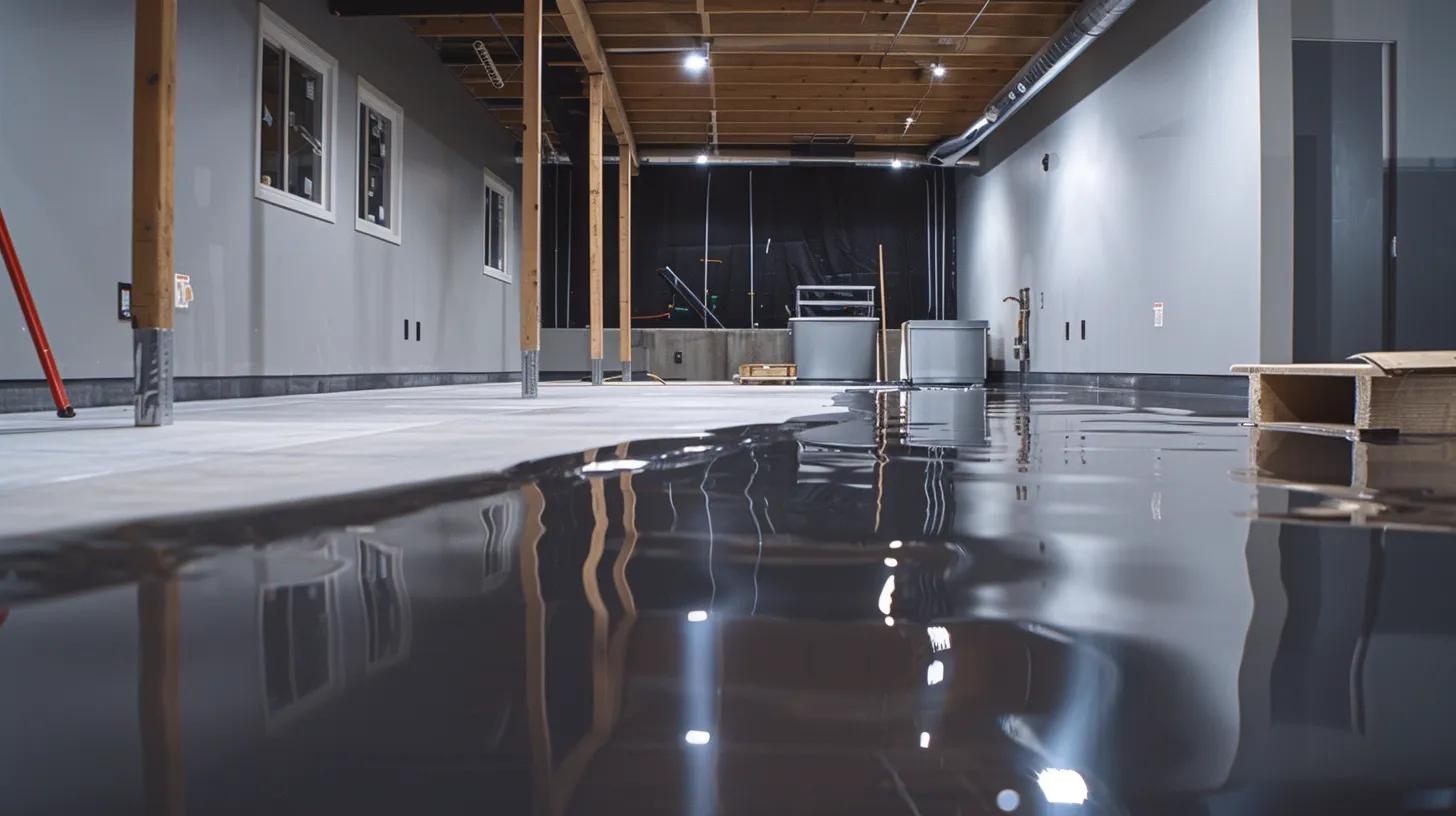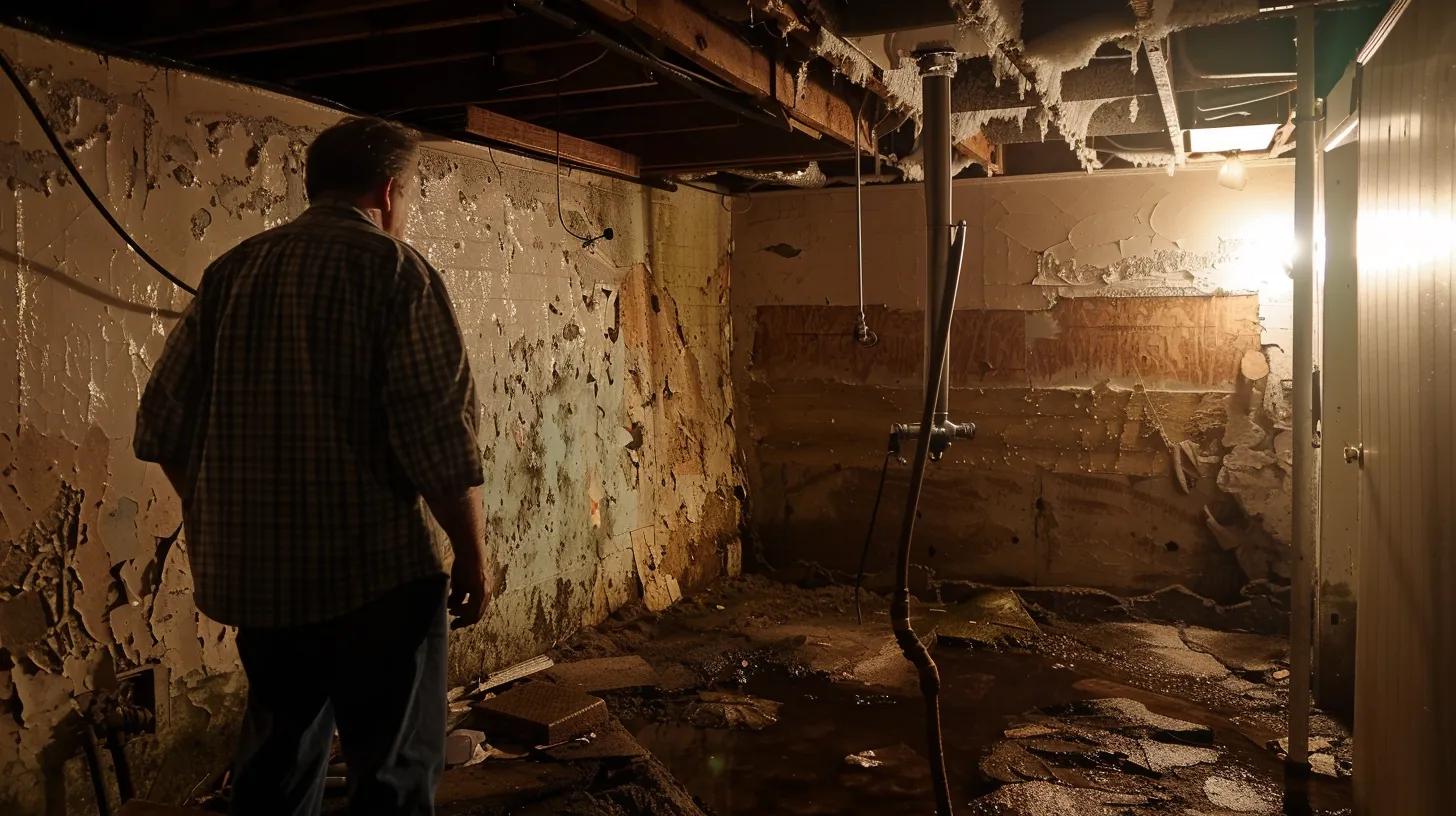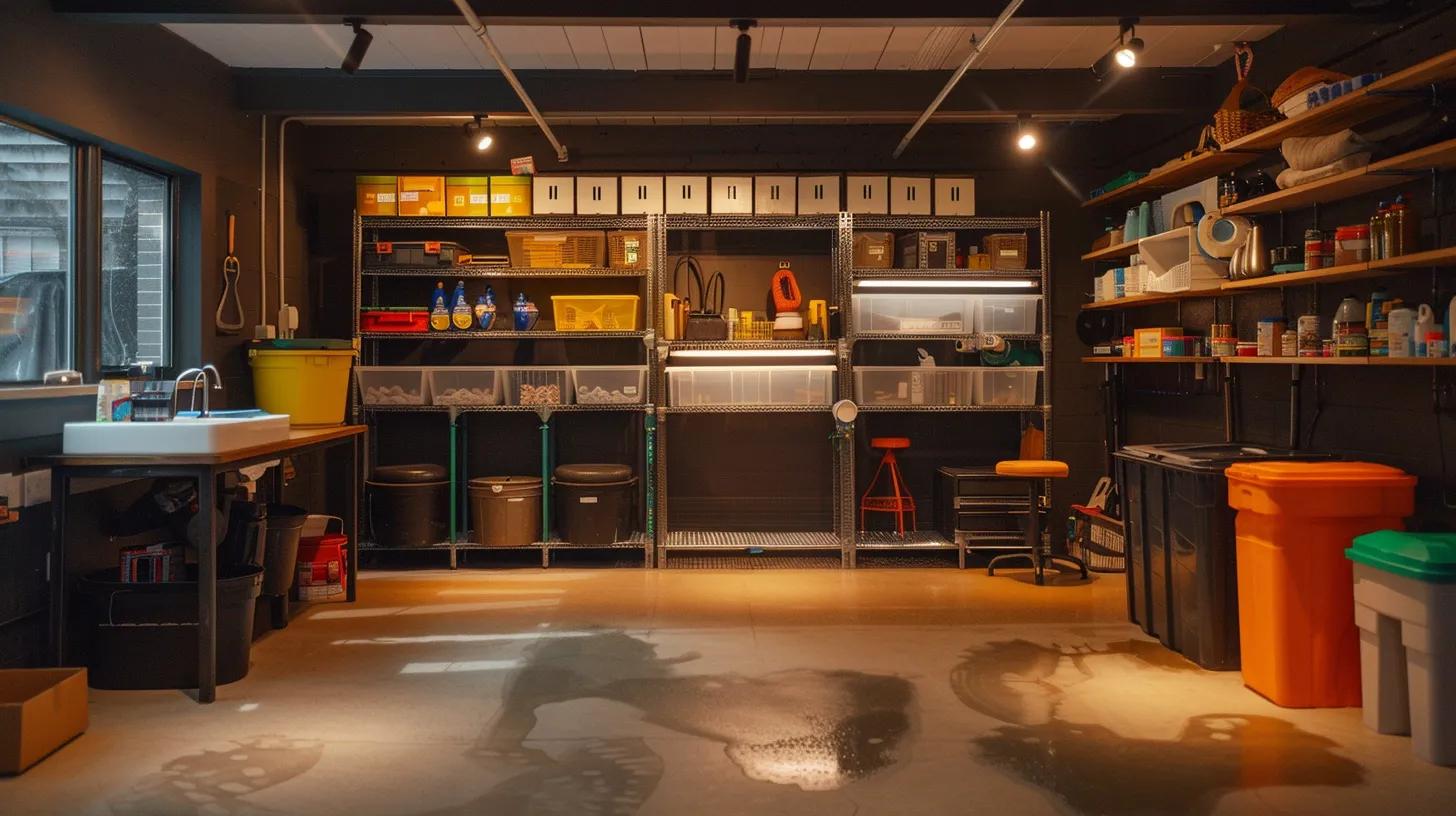Lansing Basement Waterproofing Solutions You Can Trust
Basement waterproofing is essential for protecting your foundation from water damage. At LDry Basement Waterproofing Lansing, we understand how water can harm concrete, weaken soil support, promote mildew growth, and cause foundation cracks. As your trusted basement waterproofing company in Lansing, MI, we help homeowners and businesses prevent water intrusion before it compromises their structures.
In this post, we’ll cover how outside water affects your basement, the prep needed before waterproofing, proven waterproofing techniques, essential exterior solutions, and tips for installation and upkeep. Our approach focuses on protecting your foundation from groundwater pressure, heavy rains, and poor grading. With practical advice and expert know-how, we’re here to help you keep your basement dry and secure for the long haul.
What Are the Most Effective Basement Waterproofing Services in Lansing?
Basement waterproofing Lansing MI involves a range of services to prevent water intrusion, repair existing moisture damage, and protect your foundation. Our team at LDry Basement Waterproofing Lansing uses advanced techniques to provide both interior and exterior waterproofing solutions. Our multi-pronged approach includes interior coatings and drainage, exterior waterproof membranes with proper grading, sump pump installation, foundation repair services, and improved drainage systems such as french drains. These combined methods are designed to defend against leaks and reduce the risk of flood or water damage.
How Does Interior Waterproofing Protect Your Basement From Water Damage?
Interior waterproofing is the first defense against external water intrusion and rising moisture. We apply water-resistant coatings and install internal drainage systems to relieve hydrostatic pressure on walls and floors. The process begins by sealing wall surfaces with epoxy or polyurethane-based sealants that block water even when condensation or increased groundwater levels occur. Interior drainage channels then collect any penetrating water and route it toward a sump pump. This pump expels water away from the structure, reducing the risk of flooding, improving air quality, and eliminating musty odors. Our clients notice a significant improvement in comfort and a reduction in mold and moisture-related issues after installation.
What Exterior Waterproofing Methods Are Best for Lansing Homes?
Exterior waterproofing addresses issues at the source. We excavate around the foundation and apply waterproof membranes that adhere directly to the concrete to block water from contacting the walls. Complemented by proper grading and landscaping adjustments that direct water away from your home, these measures effectively reduce leak incidents. The installation of french drains helps channel water away, particularly important in Lansing’s mixed soil conditions where shifting soil and variable moisture present ongoing challenges. Together, these exterior methods form a continuous barrier that prevents water intrusion and reduces pressure on foundation walls.
Why Is Sump Pump Installation Essential for Basement Waterproofing?
A high-quality sump pump is critical in our waterproofing strategy. Connected to a pit where groundwater accumulates, the sump pump automatically activates when water reaches a preset level. It then discharges water away from the foundation, preventing accumulation and reducing flood risk. In Lansing, where seasonal rains and fluctuating water tables are common, the installation of a sump pump—with an optional battery backup for outages—is indispensable. This measure can reduce water-related damage by over 50% during heavy rain events, providing reliable protection for your basement.
How Does Crack Repair Prevent Basement Leaks and Structural Damage?
Cracks in basement walls or floors can allow water to infiltrate and damage your foundation. We use advanced repair techniques such as epoxy injections and polyurethane foam to fill fissures tightly, ensuring there are no gaps for water penetration. Our process involves cleaning and preparing the surface before injecting a resin that bonds securely to the surrounding concrete. Regular monitoring and periodic maintenance help extend the life of these repairs. Our approach to crack repair can reduce future leakage incidents by up to 60%, preserving your basement’s structural integrity.
What Drainage Solutions Improve Basement Water Management in Lansing?
Effective drainage is the cornerstone of a robust basement waterproofing systems. In Lansing, we install exterior french drains and interior channel drainage systems to manage water flow efficiently. French drains, constructed from perforated pipes wrapped in filter fabric, capture and redirect water away from the foundation. Additionally, foundation drains along the interior walls provide a second line of defense by collecting residual water. Ensuring proper grading on your property further directs surface water toward these systems instead of pooling near the foundation. These integrated drainage solutions markedly reduce water infiltration and help maintain a dry basement environment.
How Do Lansing’s Soil and Climate Affect Basement Waterproofing Needs?
Local soil characteristics and climate play a significant role in designing effective waterproofing systems in Lansing. Both factors influence water retention and drainage, which in turn dictate the best strategies for waterproofing.

What Are the Common Soil Types in Lansing That Impact Basement Water Issues?
Lansing soils generally include clay, loam, and sandy varieties—each with distinct drainage and water retention properties. Clay soils tend to retain moisture and swell during wet periods, increasing hydrostatic pressure on basement walls. In contrast, sandy soils drain quickly but may not support stability as well, potentially leading to erosion near the foundation. By testing and analyzing your soil composition, we can design tailored waterproofing strategies such as enhanced exterior drainage systems or high-grade membranes that best meet the local conditions.
How Does Lansing’s Climate Influence Basement Moisture and Flood Risks?
Lansing experiences significant seasonal changes—from cold winters to warm summers—with considerable rainfall in the spring and fall. These fluctuations lead to variable groundwater and surface water levels throughout the year. During the spring thaw and heavy summer rains, basements are especially vulnerable to flooding and water intrusion. Additionally, freeze-thaw cycles can exacerbate existing cracks in foundations. Our basement waterproofing systems incorporate flexible, moisture-resistant materials and adaptive drainage solutions designed to handle these cyclical climate challenges, reducing the risk of both short-term and long-term moisture problems.
What Local Building Codes and Regulations Affect Basement Waterproofing?
Local building codes in Lansing require specific measures for drainage, sealing, and the use of approved waterproofing materials to ensure safety and durability. These regulations may mandate vapor barriers, exterior drainage installations, or proper sump pump systems. By working within these guidelines, we can provide warranties on our installations and ensure all work is compliant. This adherence protects homeowners by enhancing property value and ensuring a long-lasting, dependable waterproofing solution.
How Can Homeowners Choose Trusted Basement Waterproofing Companies in Lansing?
Selecting a reputable contractor is essential to ensure your waterproofing system performs effectively over time. With many options available, it is important to consider several key factors when choosing a provider.
What Should You Look for in a Reliable Lansing Basement Waterproofing Provider?
Key factors include reputation, industry experience, certifications, and a strong track record of successful projects. At LDry Basement Waterproofing Lansing, our more than 20 years of expertise and commitment to quality set us apart. We encourage homeowners to ask for references, inspect project portfolios, and verify licensing and insurance. Transparent communication about procedures, timelines, and costs—as well as free estimates and detailed plans—are essential. A provider who stands behind their work with robust warranties and positive customer testimonials is one you can trust.
How Do Customer Reviews and Warranties Build Trust in Waterproofing Services?
Customer reviews offer an unbiased look at a company’s performance and service quality. Positive testimonials and third-party ratings can validate whether a contractor consistently resolves issues and meets expectations. In addition, strong warranties on both materials and labor provide extra assurance and protect your investment. Our extended warranties and focus on customer satisfaction have helped many homeowners reduce concerns over future water damage and repair costs.
Why Is Local Expertise Important for Basement Waterproofing in Lansing?
Choosing a locally based contractor means benefiting from their in-depth understanding of Lansing’s specific soil, climate, and regulatory requirements. Local basement waterproofing experts are well acquainted with common water-related issues in the area and can recommend proven solutions. Their accessibility also ensures prompt support for maintenance or emergency repairs, making your waterproofing system more reliable over time.
What Are the Signs of Basement Water Damage and When Should You Act?
Early detection of basement water damage is crucial to avoid costly repairs and further structural issues. Recognizing warning signs can help homeowners act quickly to prevent larger problems.

How to Identify Common Basement Leak Symptoms Early?
Basement leaks may show up as damp walls, water stains, and a white, powdery residue known as efflorescence. Condensation on windows or small puddles on the floor after rain are also indicators. Routine inspections—especially during heavy rain or spring thaw—can help you catch minor leaks before they evolve into major issues. Simple tests like using a hygrometer to measure moisture levels can provide early warning, allowing for timely repairs and prevention of long-term damage.
What Are the Risks of Ignoring Basement Water Damage?
Failing to address basement water damage can lead to severe consequences. Ongoing moisture can deteriorate concrete and masonry, weaken structural supports, and encourage mold and mildew growth, which poses health risks. In addition, unchecked water problems may necessitate expensive repairs such as foundation restoration or crawl space repair, dramatically reducing property value. By acting promptly, you can avoid these risks and ensure a safe, dry environment.
When Is Professional Waterproofing Necessary vs. DIY Solutions?
DIY fixes, such as applying sealants or using a dehumidifier, might provide temporary relief but are often insufficient for substantial water issues. Professional waterproofing involves a comprehensive approach that corrects underlying problems like poor drainage, foundation cracks, or excessive hydrostatic pressure. When moisture and structural damage persist, upgrading to professional services guarantees a long-term solution that minimizes the need for repeated repairs.
How Much Does Basement Waterproofing Cost in Lansing and What Affects Pricing?
Understanding how pricing is determined can help homeowners budget for essential waterproofing services. Costs depend on several factors, including the extent of water damage and the specific waterproofing methods required.
What Factors Influence the Cost of Basement Waterproofing Services?
Key cost drivers include the size of the basement, the level of water damage, soil conditions, and whether interior or exterior methods—or a combination—are needed. Material quality, such as high-grade membranes and specialized sealants, as well as labor expenses in your area, also affect the price. Detailed assessments are necessary to determine if additional services, like foundation repairs, sump pump installations, or landscape grading, are required. Our free estimates provide a transparent breakdown of these factors so you can make an informed decision.
How Do Interior vs. Exterior Waterproofing Costs Compare?
Interior waterproofing is generally less costly because it involves less excavation and labor. Exterior waterproofing, which may require extensive excavation and the use of specialized materials, tends to be more expensive—often 20% to 30% higher. Evaluating your home’s specific needs, along with local soil and water conditions, will determine the most suitable option. We strive to offer cost-effective recommendations that deliver lasting performance while meeting your budget.
Are There Financing or Warranty Options Available for Lansing Homeowners?
Many waterproofing companies, including LDry Basement Waterproofing Lansing, offer flexible financing options to help spread costs over time. Additionally, our work is backed by warranties—typically ranging from 5 to 10 years—that cover both materials and labor. These provisions protect your investment and provide peace of mind, knowing that any future issues will be addressed promptly and professionally.
What Preventative Maintenance Tips Help Keep Your Lansing Basement Dry Year-Round?
Preventative maintenance is key to ensuring your waterproofing system continues to perform well over time. Regular upkeep can extend the life of your installation and reduce the risk of costly repairs.

How Can Seasonal Basement Waterproofing Protect Against Flooding?
Seasonal maintenance is essential because weather conditions change throughout the year. During rainy seasons, it is important to inspect for signs of water intrusion, verify that drainage systems and sump pumps are functioning, and clear gutters and downspouts. In winter, reinforcing seals and applying fresh waterproof coatings can protect against freeze-thaw damage. Many homeowners have seen up to a 40% reduction in flood risks by following these seasonal practices.
What Routine Checks Should Homeowners Perform on Sump Pumps and Drainage?
Regular testing of your sump pump and drainage systems is crucial. We recommend checking the sump pump by pouring a small amount of water into its pit to ensure it activates properly. Inspect the pump for signs of wear or rust and clean out any debris from drainage pipes. These routine checks help maintain peak performance and prevent unexpected pump failures during critical periods.
How Does Proper Grading and Landscaping Prevent Basement Water Issues?
Proper grading ensures that soil slopes away from your foundation, directing water away rather than allowing it to pool. In addition, strategic landscaping—such as installing retaining walls or planting shrubs—can serve as a natural barrier against water flow. Together, these measures reduce hydrostatic pressure on your foundation and have been shown to significantly decrease moisture issues in basements.
What Are Real-Life Examples of Successful Basement Waterproofing Projects in Lansing?
Real-life case studies illustrate how comprehensive waterproofing can preserve property integrity and prevent costly damage. At LDry Basement Waterproofing Lansing, we have successfully addressed a wide range of challenges—from interior leaks to drainage issues caused by local soil conditions. These examples provide practical insights and inspiration for homeowners facing similar problems.
How Did Interior Waterproofing Resolve Severe Basement Leaks?
In one case, a residential property in central Lansing suffered from chronic basement leaks due to poor drainage and inadequate sealing. We implemented a full interior waterproofing system by sealing all wall surfaces and installing an advanced drainage system connected to a high-capacity sump pump. During heavy rains, the system effectively redirected water away from the walls, dramatically improving indoor air quality and eliminating damp odors.
What Exterior Waterproofing Solutions Worked for Lansing’s Soil Challenges?
Another project involved a home built on clay-rich soil, which created high hydrostatic pressure on the foundation. We performed exterior excavation, applied a robust waterproof membrane, and installed a french drain system to channel water away. This approach stabilized the structure, eliminated seepage issues, and provided long-term protection against future rainfall and soil expansion.
How Have Sump Pump Installations Prevented Flood Damage in Lansing Homes?
A commercial property in Lansing experienced recurrent flooding during spring rains until we installed an advanced sump pump system with a battery backup. This ensured continuous operation during power outages and rapidly expelled accumulated water. Subsequent heavy rains did not increase basement water levels, illustrating the effectiveness of our sump pump installations.
Comparison of Waterproofing Methods
Below is a table summarizing key attributes of various waterproofing methods and their benefits:
Before making a decision, review these methods to determine which approach best suits your basement challenges, budget, and long-term protection needs.
Key Benefits of Professional Waterproofing
- Enhanced Structural Integrity: Prevents water seepage to protect your foundation and walls.
- Mold and Mildew Prevention: Reduces moisture build-up that can lead to mold growth.
- Energy Efficiency: A dry basement improves insulation, lowering heating and cooling costs.
- Increased Property Value: Professionally waterproofed basements are a valuable asset.
- Peace of Mind: Reliable, long-term protection against water damage in adverse conditions.
Frequently Asked Questions
Q: How often should I schedule basement waterproofing maintenance in Lansing? A: We recommend an annual inspection—especially after the rainy season—to catch early signs of water intrusion. Regular checks on sump pumps, wall seals, and drainage systems can prevent major damage and save on costly repairs.
Q: Can I use a dehumidifier as a temporary fix for moisture problems? A: While a dehumidifier can lower indoor humidity temporarily, it does not resolve the root causes of water intrusion. For lasting protection, professional waterproofing with proper drainage and sealant applications is necessary.
Q: What is the typical warranty period for waterproofing services provided by LDry Basement Waterproofing Lansing? A: Our warranties typically range from 5 to 10 years, depending on the system installed and specific project conditions. These warranties cover both materials and workmanship, giving you long-term assurance.
Q: How can I tell if my basement has a water leak or if it is just condensation? A: Water leaks often appear as persistent damp spots, stains, or pooling, while condensation usually occurs on cold surfaces and evaporates quickly. If a wet basement area does not dry out, it is best to contact a professional for an inspection.
Q: Are financing options available for large waterproofing projects? A: Yes. We offer financing options that allow you to spread the cost over several months, ensuring immediate protection for your basement without compromising quality.
Q: What additional steps can I take to protect my foundation from water damage? A: Ensure proper grading around your home, keep gutters clean, and maintain landscaping to effectively direct water away from your foundation. These steps, combined with professional waterproofing, create a robust defense against water damage.
Q: How soon after waterproofing will I notice an improvement in my basement’s dryness? A: Most homeowners see a significant drop in moisture levels almost immediately after installation. While drainage and sealing work quickly, long-term benefits like reduced mold growth and improved structural integrity continue to develop over subsequent months.
Our guide has covered the key aspects of basement waterproofing Lansing MI, from interior and exterior methods to local soil and climate influences. At LDry Basement Waterproofing Lansing, we combine professional expertise with advanced technology to offer reliable, cost-effective waterproofing systems. Through proactive maintenance, proper drainage, and essential services like sump pump installation and crack repair, we help safeguard your property. By choosing our trusted services, you ensure long-term structural integrity and enjoy peace of mind knowing your home is well-protected against Lansing’s unique water challenges.
